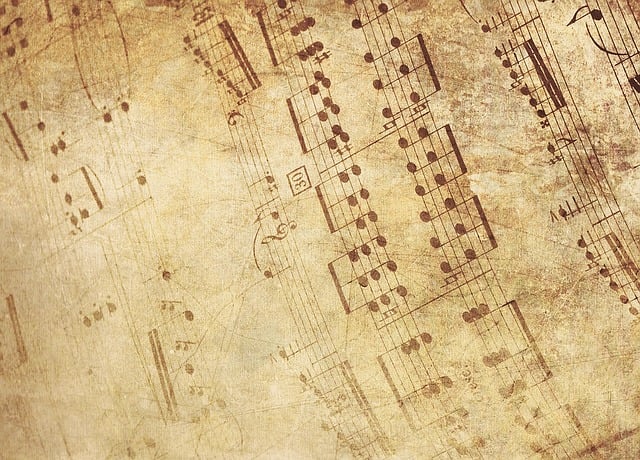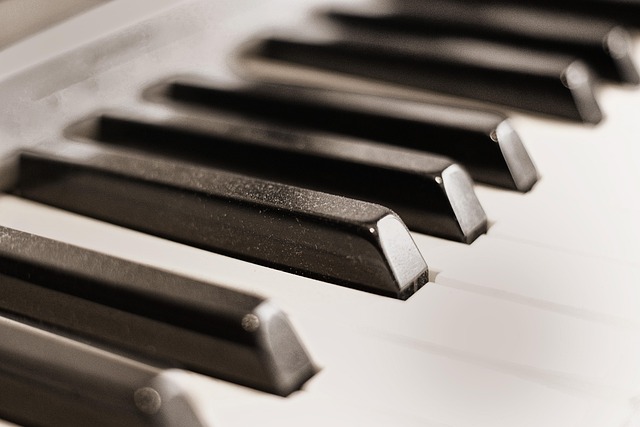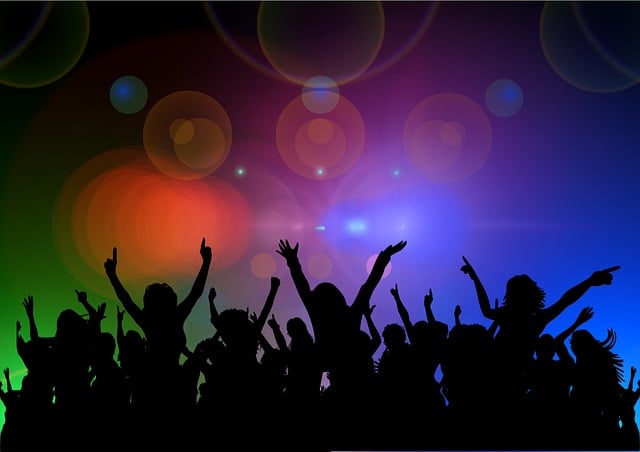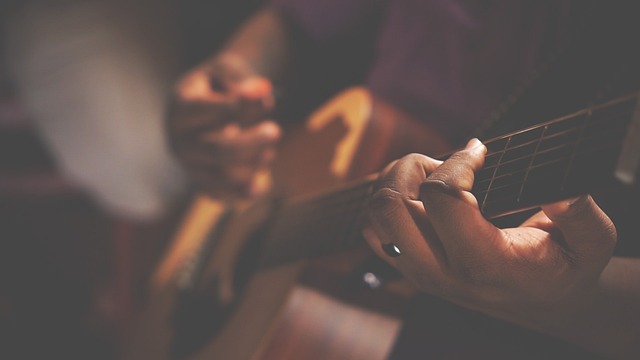AI musicians are revolutionizing music creation, collaborating with humans to produce original, diverse compositions across genres. These AI models, powered by advanced algorithms and datasets, learn musical patterns and trends to generate fresh ideas. While offering numerous benefits like rapid production and personalized content, they also raise concerns about devaluing human creativity and ownership issues. Balancing AI's potential with preserving artistic integrity is crucial as the music industry adapts to this evolving landscape, with AI-driven collaborations reshaping the future of music.
“Welcome to the dawn of a new era in music creation—the rise of AI musicians is reshaping the industry. This article explores how artificial intelligence (AI) is transforming music, from the creative process to ownership and ethical debates. We delve into the mechanics of training AI musicians, the benefits they offer, and the challenges they present. Additionally, we ponder the future of AI-assisted music, considering current trends and boundless possibilities.”
- The Rise of AI Musicians: A New Era in Music Creation
- How AI is Transforming the Music Industry
- Understanding the Process: Training and Collaboration with AI Musicians
- Benefits and Challenges: Working with Artificial Intelligence in Music
- Ethical Considerations: Ownership, Creativity, and the Role of Human Artists
- The Future of AI-Assisted Music: Trends and Possibilities
The Rise of AI Musicians: A New Era in Music Creation

The rise of AI musicians marks a new and exciting era in music creation, transforming the way we compose, produce, and experience melodies. With advancements in artificial intelligence, machines are now capable of generating original and captivating musical pieces, challenging traditional notions of artistic expression. These AI musicians, powered by sophisticated algorithms and vast datasets, can compose, arrange, and even perform music that rivals human creations.
This innovative technology is opening doors for collaborations between humans and AI, leading to unique artistic expressions. AI musicians can adapt to various genres, styles, and moods, offering endless possibilities for composers and producers. As the field of artificial intelligence continues to evolve, we can expect even more sophisticated AI musicians, pushing the boundaries of what’s possible in the music industry.
How AI is Transforming the Music Industry

AI is revolutionizing the music industry, introducing a new era of creativity and innovation. With advancements in artificial intelligence, we now see AI musicians and composers capable of creating original melodies, harmonies, and even entire songs. These AI models learn from vast datasets of musical compositions, allowing them to generate unique pieces that can mimic various styles and genres. This technology is not only enhancing music production but also opening doors for collaboration between human artists and AI, fostering a new form of artistic expression.
The impact of AI musicians extends beyond composition. They can analyze vast libraries of music, providing valuable insights into musical trends, patterns, and structures. This analytical capability enables music producers and artists to make informed decisions, experiment with new sounds, and push creative boundaries. Additionally, AI-generated music is finding its way into various applications, from video games and films to advertising campaigns, offering diverse and dynamic auditory experiences.
Understanding the Process: Training and Collaboration with AI Musicians

Understanding the process of creating music with AI musicians involves grasping the intricate training mechanisms that power their artistic capabilities. These advanced systems are trained on vast datasets comprising diverse musical compositions, allowing them to learn patterns, structures, and styles from a wide range of genres and eras. Through this training, AI musicians develop an innate understanding of rhythm, harmony, and melody, enabling them to generate unique and often surprising musical outcomes.
Collaboration with these artificial artists is an evolving art in itself. Musicians and composers can interact with AI models by providing specific prompts, such as a desired mood, genre, or structural guidelines. During the creative process, back-and-forth exchanges refine the AI’s output, fostering a symbiotic relationship where human intuition guides the AI’s capabilities while the model offers novel ideas and unexpected twists. This collaboration not only enhances musical compositions but also pushes the boundaries of artistic expression.
Benefits and Challenges: Working with Artificial Intelligence in Music

The integration of AI musicians and music generation tools offers a plethora of benefits for the creative industry. One of the key advantages is the ability to produce unique and diverse musical compositions at an unprecedented pace. AI algorithms can analyze vast datasets of existing music, styles, and trends, enabling them to create novel sounds that might inspire human composers. This technology also allows for personalized music creation, catering to individual preferences and offering a new level of accessibility for aspiring musicians.
However, challenges exist in this emerging field. One significant concern is the potential devaluation of human creativity, as AI-generated music raises questions about authorship and originality. Additionally, ensuring that AI musicians adhere to musical standards and develop cohesive compositions requires careful programming and training, which can be complex and time-consuming. Balancing these factors is essential to harness the full potential of AI in music while preserving the artistic integrity of human musicians.
Ethical Considerations: Ownership, Creativity, and the Role of Human Artists

As AI musicians gain prominence, a crucial discussion arises around ethical considerations in their integration into the music industry. One of the primary concerns revolves around ownership and intellectual property rights. When an AI algorithm generates a musical composition, determining ownership becomes complex. Is it the developers who coded the AI, the users who provide inputs, or the AI itself? Establishing clear ownership rights is essential to protect both human artists and the evolving role of artificial intelligence in music creation.
Furthermore, creativity is at the heart of this debate. While AI musicians can produce original and captivating sounds, some argue that true artistic creativity is inherently human. The fear is that over-reliance on AI might devalue the unique contributions of human artists. Striking a balance between leveraging AI’s capabilities for musical innovation and preserving the role of human musicians is vital to ensure ethical practices in this emerging field.
The Future of AI-Assisted Music: Trends and Possibilities

The future of music is set to be transformed by AI musicians and the innovative possibilities they bring. As artificial intelligence continues to advance, its impact on the creative industries becomes increasingly significant. One of the most exciting trends is the collaboration between human artists and AI musicians, where the latter can generate unique melodies, harmonies, and even entire compositions. This opens up a world of opportunities for composers and producers who can leverage AI tools to expedite their creative processes and explore new sonic landscapes.
AI-assisted music production is evolving rapidly, with advancements in machine learning algorithms enabling more sophisticated musical outcomes. From generating background tracks to composing complex scores, AI musicians are becoming indispensable in various genres, from electronic and pop to film and game soundtracks. As technology becomes more accessible, we can expect a surge in user-generated content, where individuals create and share their own AI-composed pieces, fostering a new era of musical expression and collaboration.
The integration of AI musicians marks a significant turning point in the music industry. As we’ve explored, these artificial intelligence creations offer unprecedented creative potential, revolutionizing music composition and production. However, as we navigate this new era, it’s crucial to address ethical concerns surrounding ownership, creativity, and the role of human artists. Balancing these factors will be key to unlocking the full potential of AI-assisted music while ensuring a harmonious co-existence for both artificial and human creators. The future of music promises exciting possibilities with AI musicians, but it also demands thoughtful consideration and responsible development.
